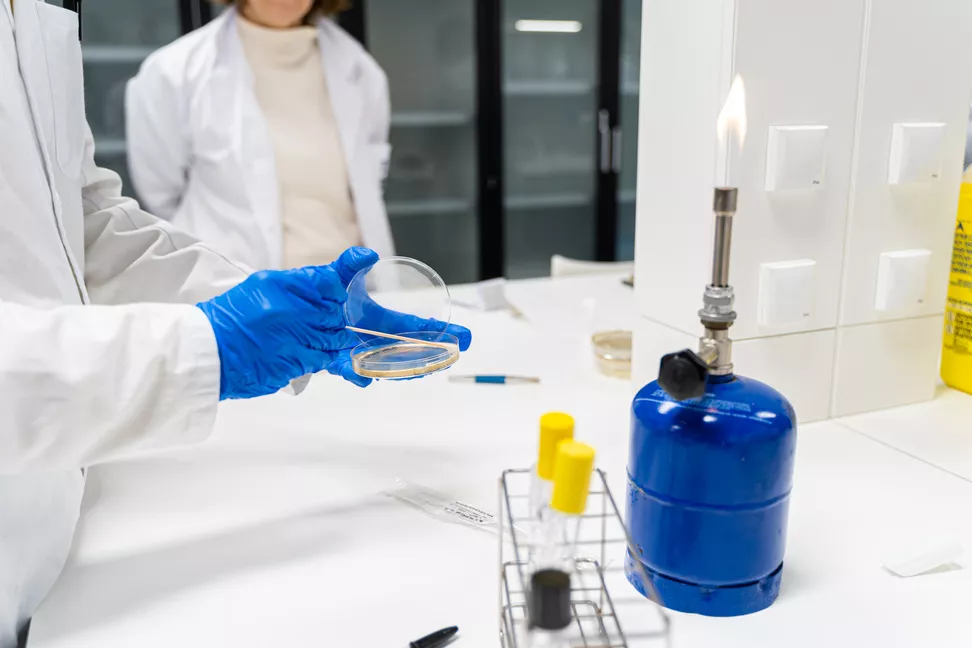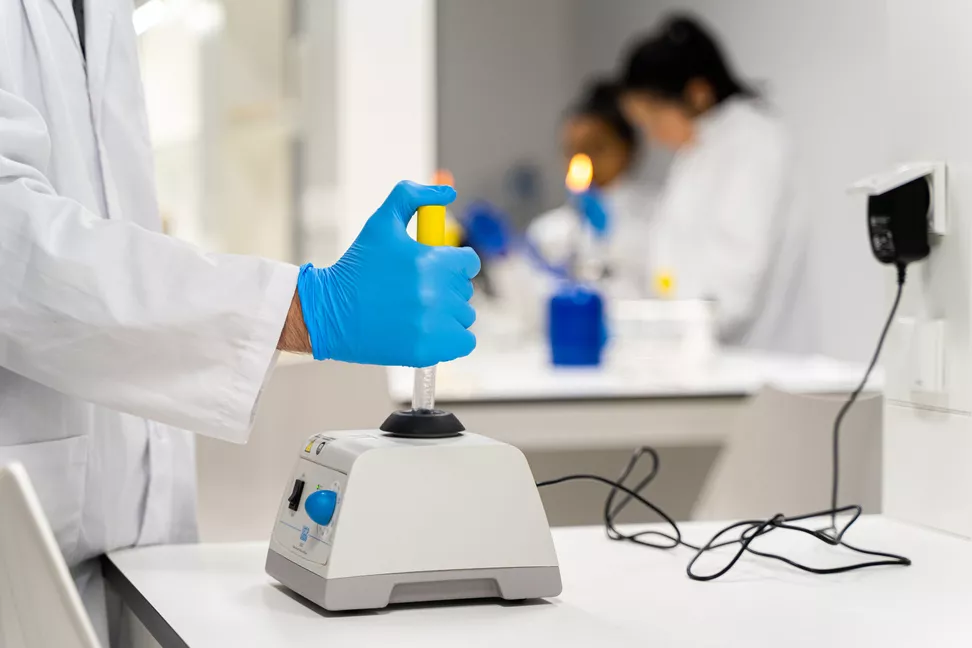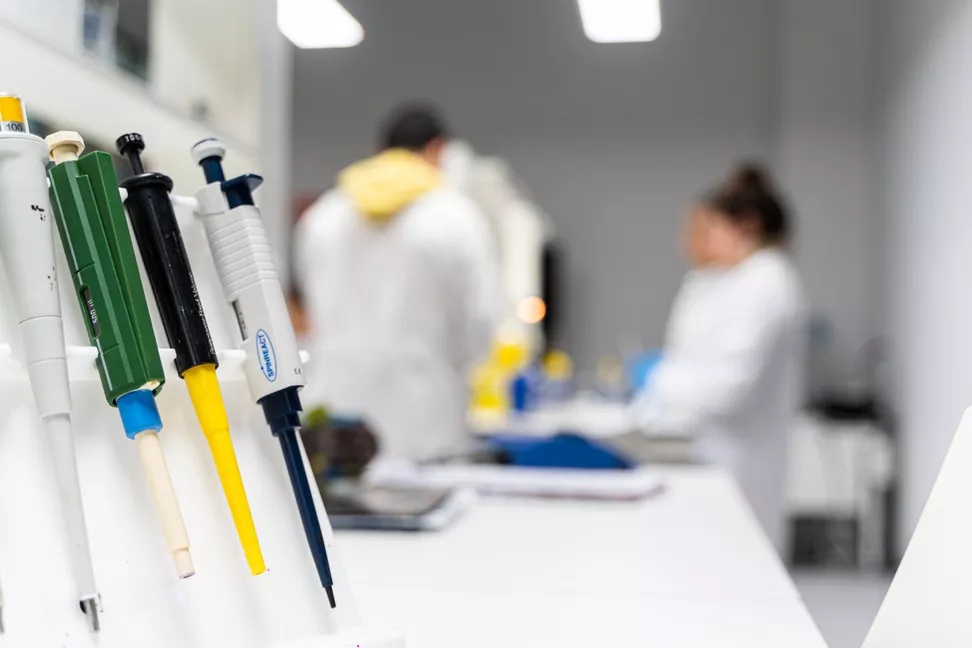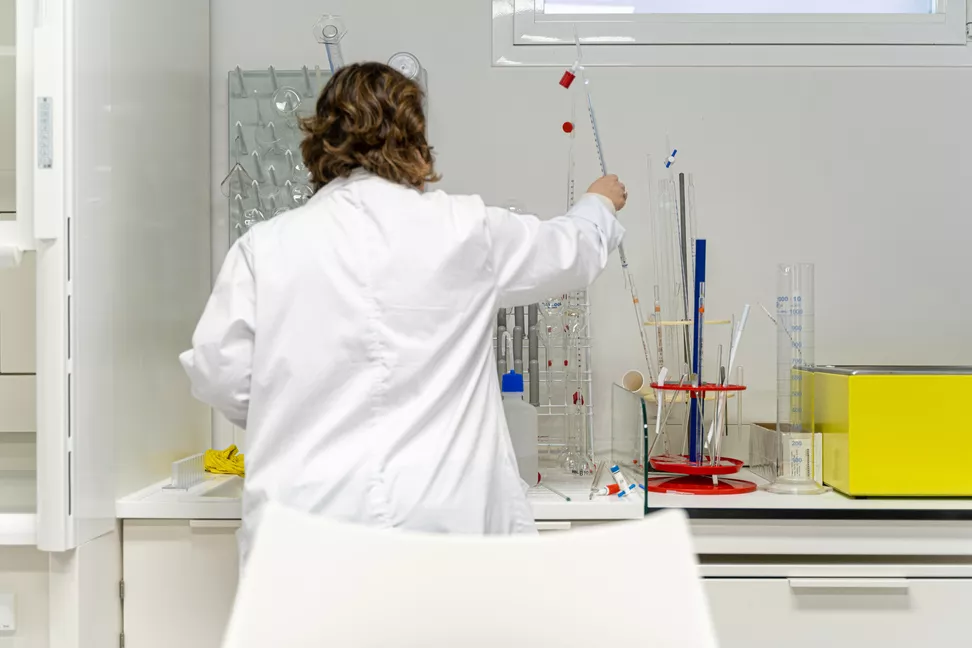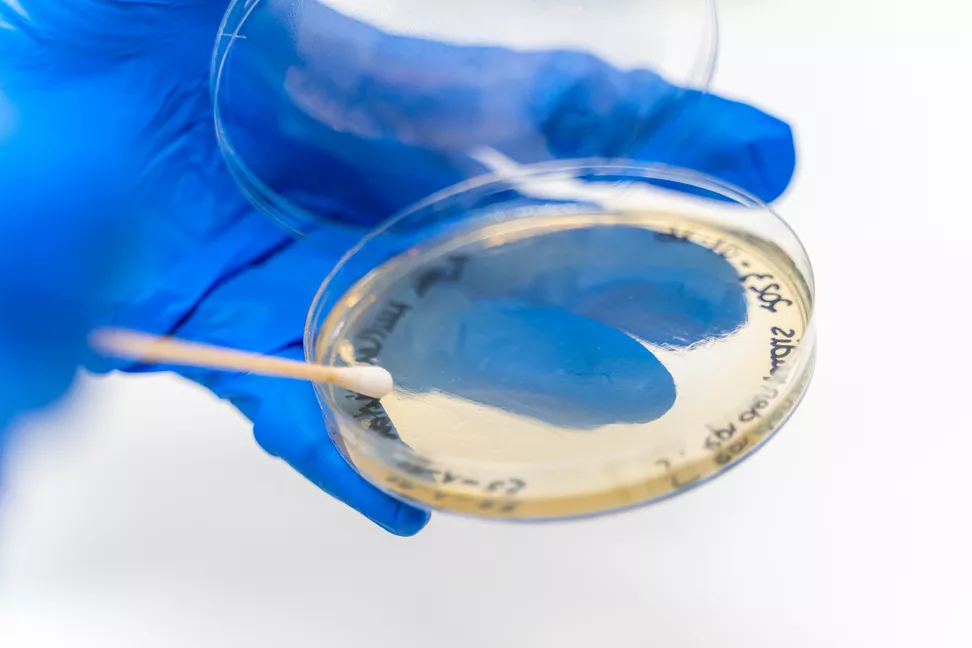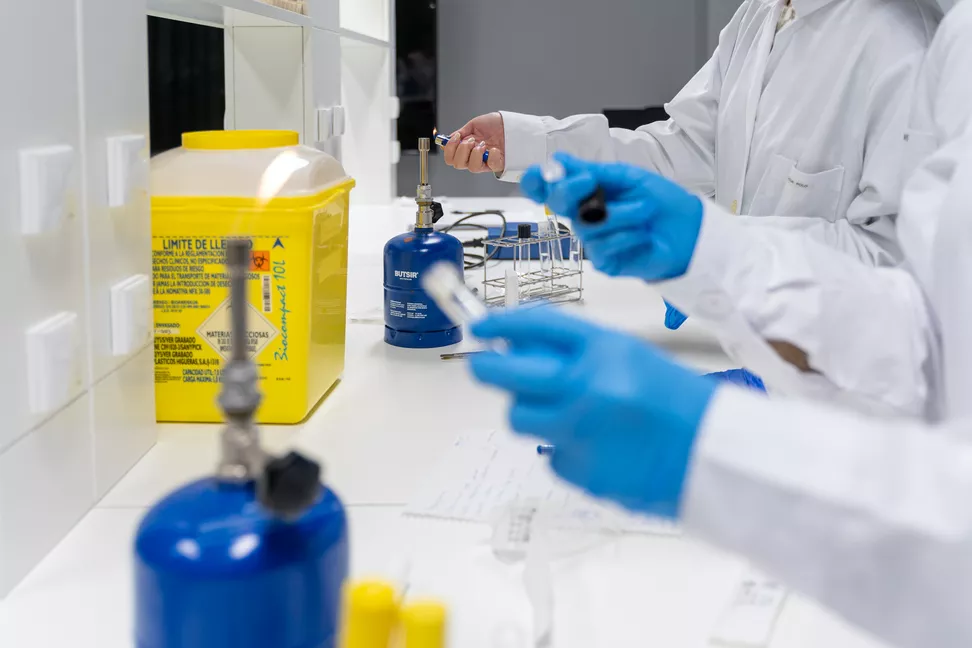The holder of this diploma will have acquired the General Competence with regard to:
- Carrying out analytical studies of biological samples, following normalised protocols of work;
- Applying established quality, safety and environmental regulations, and assessing technical results, so that they can be used as a support for prevention, diagnosis and control of evolution, for the treatment of diseases, and for research, following the protocols established in the health care unit.
| Professional Module | Hours-total | Year |
|
Management of Biological Sample
|
132 | 1st |
| General Laboratory Techniques | 231 | 1st |
|
General Pathophysiology
|
165 | 1st |
|
Clinical Microbiology
|
198 | 1st |
|
Personal itinerary for employability I
|
120 | 1st |
|
Molecular Biology and Cytogenetics
|
180 | 1st |
|
Immunodiagnostic Techniques
|
120 | 1st |
|
Sustainability applied to productive sectors
|
30 | 1st |
|
Biochemical Analysis
|
165 | 2nd |
|
Techniques for Hematologic Analysis
|
200 | 2nd |
|
Intermodular project
|
50 | 2nd |
|
Professional English
|
63 | 2nd |
| Personal itinerary for employability II | 63 | 2nd |
| Digitalization applied to productive sectors | 63 | 2nd |
| Optional modules | 84 | 2nd |
Access to the High-level courses or modules requires compliance with at least one of the following conditions:
- To be in possession of the Post-compulsory High School Diploma or a certificate proving that all subjects of the Post-compulsory High School have been passed.
- To have passed the third year of the Unified and Polyvalent Baccalaureate (BUP): Accreditation through academic certification of having passed all subjects leading to the Post-compulsory High School regulated by Law 14/1970, of 4 August, on General Education and Financing of Educational Reform, after completing the third year of aforesaid studies (Order EFP/1210/2021 of November 2, which establishes the equivalence, for the purposes of access to vocational training courses, of certain studies and qualifications prior to the current education system).
- To have passed the second year of the Experimental Post-compulsory High School (Bachillerato experimental).
- To be in possession of a Technician certificate (Intermediate-level Vocational Training).
- To be in possession of a Higher Technician or Specialist Technician certificate, or equivalent for academic purposes
- To have passed the University Orientation Course (COU).
- To be in possession of any university degree or equivalent.
- To have passed the entrance exam for higher-level training courses (it will be required to be at least 19 years old in the year the test is taken or 18 for those who have a Technician’s degree).
- To have passed the university entrance exam for those over 25 years old.
Either you work in:
- In the health sector, in public institutions and bodies and in private enterprises, in the area of the laboratory of clinical analysis and in the diagnosis, treatment, management and research. They act as dependent workers for a body or institution that can be small, medium-size or large. Their professional activity is regulated by the State Health Administration.
Or you continue studying:
- Professional specialization courses.
- Another Higher-level Vocational Training course with the possibility of establishing validations of professional modules in accordance with current regulations.
- University studies with the possibility of establishing validations in accordance with current regulations.
- Organize and manage the work area at their level, performing inventory control according to established procedures.
- Obtain biological samples, according to the unit’s specific protocol, and distribute them according to clinical and/or analytical demands, ensuring their preservation throughout the process.
- Guarantee process quality, ensuring traceability, according to established protocols.
- Verify equipment operation, applying quality and safety procedures.
- Prepare the sample for analysis, applying pre-analytical processing techniques and following established quality and safety protocols.
- Evaluate the consistency and reliability of the results obtained in the analyses, using computer applications.
- Apply genetic analysis techniques to biological samples and cell cultures, according to established protocols.
- Perform analytical determinations of biochemical parameters, following standardized work protocols and adhering to quality standards.
- Perform microbiological analysis on biological samples and cultures, following safety and environmental protection protocols.
- Apply immunological techniques, selecting procedures based on the requested determination.
- Perform haematological analysis techniques, following established protocols.
These teachings include the knowledge required to carry out basic level activities for the prevention of occupational risks.
Professional group: Health
Total duration: 2 years
- First year
- Second year
Model: D (Basque)
Shift: Morning
Methodology: Challenge-based collaborative learning

